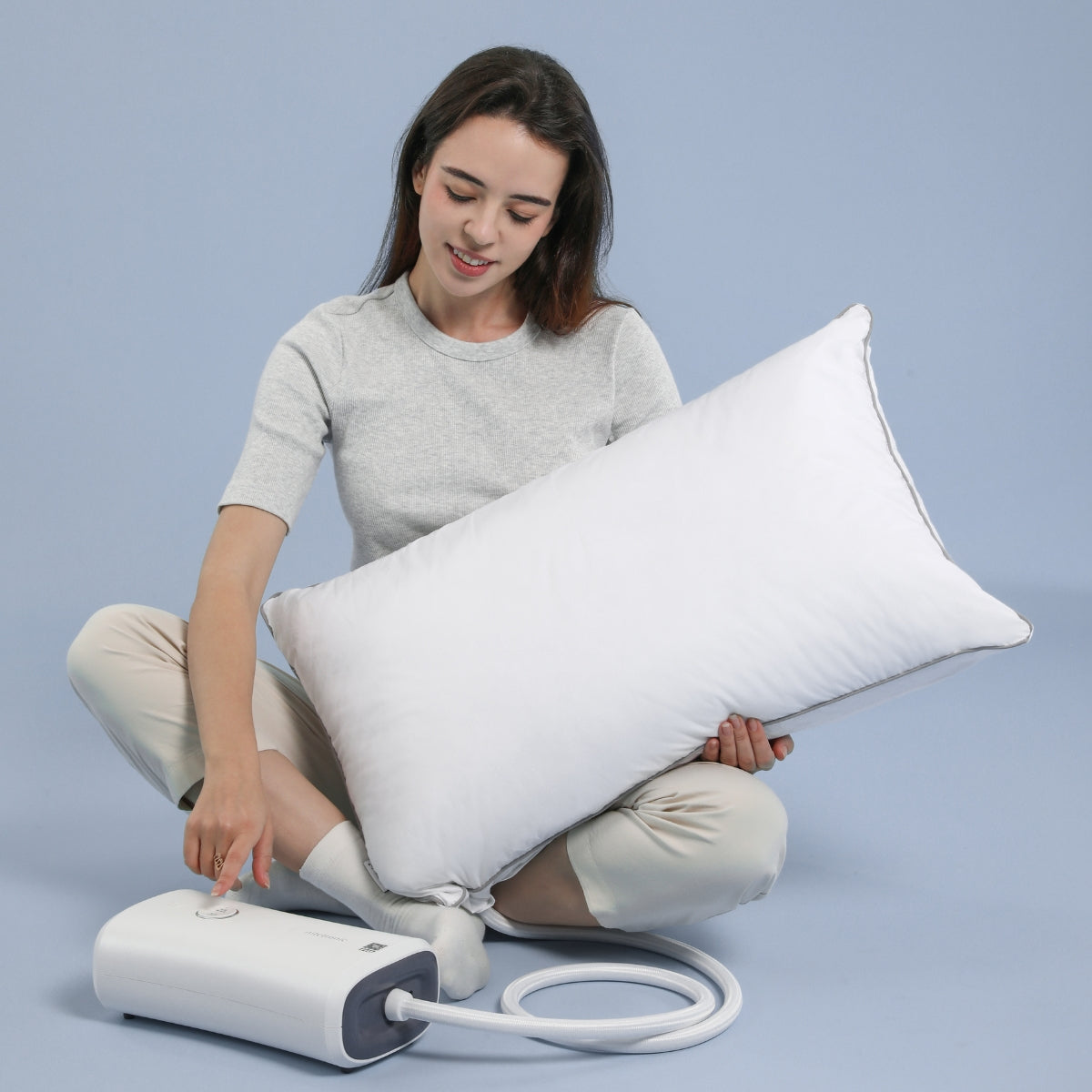- What are the causes of snoring?
- Can anti-snore pillow stop snoring?
- How Do Anti-Snore Pillows Work?
- Best Slow rebound sponge Anti-Snore Pillow:nitetronic pillow z6
Introduction:
Snoring is a widespread phenomenon that affects both snorers and their sleeping partners. Often seen as a mere annoyance, snoring can also be indicative of underlying health issues. Fortunately, with the advancement in sleep technology, several snoring treatments have emerged. In this article, we will delve into the efficacy of a popular solution: anti-snore pillows, with a special focus on the Nitetronic Anti-Snore Pillow.

What are the causes of snoring?
Before we explore the potential effectiveness of anti-snore pillows, it is crucial to understand the underlying causes of snoring. Snoring occurs due to the partial obstruction of the airways during sleep, leading to the vibration of the soft tissues in the throat. Various factors can contribute to this obstruction, including obesity, allergies, nasal congestion, alcohol consumption, and sleep position.
Can anti-snore pillow stop snoring?
Anti-snore pillows have gained significant popularity in recent years as a non-invasive solution to combat snoring. These pillows are specially designed to provide better head and neck support, thus promoting proper alignment of the airways during sleep. They claim to eliminate snoring at the very least and verified by scientific data,reduce its intensity, leading to improved sleep quality for both the snorer and their partner.
How Do Anti-Snore Pillows Work?
Anti-snore pillows incorporate unique features and innovative design elements aimed at preventing airway obstruction. These pillows generally offer better head and neck positioning, ensuring that the jaw and tongue do not fall back, thus allowing for unobstructed breathing during sleep. Additionally, some anti-snore pillows come with built-in elevation and contouring, which can help open up the airways and reduce pressure on the throat.

Best Slow rebound sponge Anti-Snore Pillow: nitetronic pillow z6
One notable player in the market for anti-snore pillows is the Nitetronic Anti-Snore Pillow. This smart pillow boasts additional functionalities that set it apart from conventional anti-snore pillow offerings. Equipped with advanced sensors, it is designed to detect the sound and vibrations of snoring. Once detected, the pillow gently adjusts its position, encouraging the snorer to change their sleep position without fully waking them up.


Effectiveness and User Feedback:
To determine the effectiveness of anti-snore pillows, including the Nitetronic Anti-Snore Pillow, it is crucial to consider user feedback and clinical studies. Several positive reviews suggest that individuals using these pillows experience a reduction in snoring frequency and intensity, leading to improved sleep for both the snorer and their partner.
While individual experiences may vary, it is important to acknowledge that anti-snore pillows cannot address severe cases of snoring resulting from sleep apnea or other serious medical conditions. However, they can be a valuable addition to an overall snoring treatment plan.
Complementary Strategies to Combat Snoring:
While an anti-snore pillow can be an effective aid in reducing snoring, it is often best utilized alongside other lifestyle changes. Here are some complementary strategies to consider:

- Maintain a healthy weight: Obesity is closely linked to snoring, so adopting a healthy lifestyle, including regular exercise and a balanced diet, can help reduce snoring episodes.
- Sleep on your side: This position promotes better airway alignment, reducing the likelihood of snoring. An anti-snore pillow can help you maintain a side-sleeping position throughout the night.
- Avoid alcohol and sedatives: These substances relax the throat muscles, increasing the chances of airway obstruction and snoring. Limiting their consumption, especially before bedtime, can have a positive impact.
- Address nasal congestion: Clearing nasal passages using saline sprays or nasal strips can improve airflow and reduce snoring.
- Consult a medical professional: If snoring persists despite your efforts, it is essential to consult a healthcare professional for a proper diagnosis and potential treatment options.
Conclusion:
Snoring can disrupt the quality of sleep for both the snorer and their partner. While anti-snore pillows, such as the Nitetronic Anti-Snore Pillow, offer promising results in combating snoring, it is important to remember that individual experiences may vary. Combining the use of an anti-snore pillow with other lifestyle changes can maximize the effectiveness of snoring treatment strategies, leading to a better night's sleep for all. Remember, if snoring persists or worsens, it is always advisable to seek medical advice for a comprehensive evaluation and personalized treatment plan.












Leave a comment
This site is protected by hCaptcha and the hCaptcha Privacy Policy and Terms of Service apply.